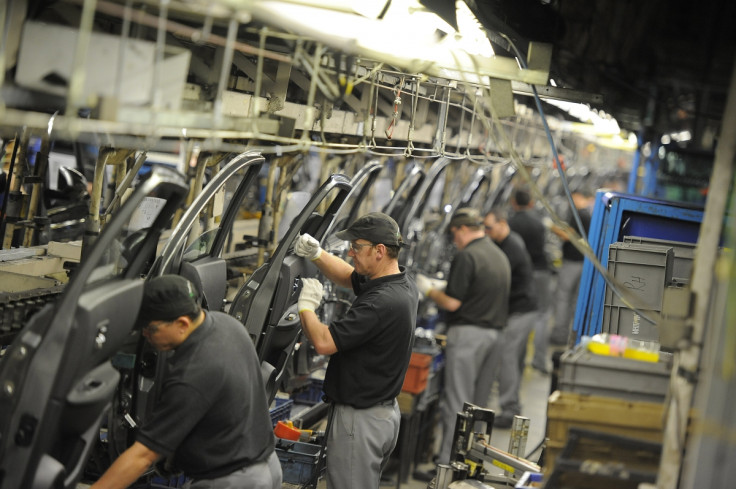Innovation is crucial as manufacturing sector hits volatile market

Changes in the price of commodities, such as oil, have had a deep-rooted impact on the manufacturing sector making continued innovations even more critical for the industry, the director of a multinational manufacturer has claimed.
Damian Hennessey, director at US-based Proto Labs, a provider of rapid manufacturing of low-volume CNC-machined, said that the volatility in commodity prices continue to have an adverse effect on the cost of operations. The European economic markets have fluctuated greatly of late, with all industries seeing swings in their forecasts, and economists warning that the manufacturing industries could be suffering from a global slowdown.
"The challenge is in finding and embedding ways of keeping our costs low for our customers, at a time when our overheads vary so greatly," he told IBTimes UK.
"Our approach to is to continually evolve, embracing innovation and reflecting the European picture in every element and region of our business. We believe it's this drive and innovation that keeps us ahead of the curve and better prepared to deal with such fluctuations in international markets."
Figures released on Wednesday 3 May, showed the UK manufacturing sector slipped into contraction territory for the first time in almost three years. The Markit/CIPS UK Manufacturing PMI stood at 49.2 last month, compared with a downwardly revised 50.7 reading in March and analysts' expectations for a 51.2 reading. The figure marked the first time the UK construction sector has fallen below the 50 threshold, which indicates no change, since March 2013.
Technological innovation remains crucial
The US manufacturing sector is also in the middle of a slowdown, albeit less marked than the one currently gripping its British counterpart, but it was not all doom and gloom for manufacturing companies.
Speaking at the Hannover Messe, the world's leading trade fair for industrial technology, late in April, US President Barack Obama said the USA and Europe can continue to forge a "special relationship" as the future of manufacturing faces a new era of digital disruption.
Obama added the US government has launched next-generation manufacturing hubs and online tools to help entrepreneurs get new businesses off the ground as swiftly as possible, in a bid to boost the sector.
However, while the manufacturing industry has made significant steps in embracing new technologies, Hennessey said it was crucial firms remained constantly ahead of the curve.
"New technology is fuelling digital manufacturing, with organisations tailoring their products, processes and services to embrace advances in areas such as automation," he said.
"Businesses need to continuously review all elements of their organisations from function to facilities, ensuring cost-effective hubs that will best serve their customers' needs."
The slowdown in emerging markets has been partly blamed for the volatility and mixed economic picture that has characterised different industries, including the manufacturing sector, over the last 12 months. However, while an improvement across emerging economies would boost the manufacturing sector, Hennessey warned there were a lot more factors to take into consideration.
"The future of the manufacturing industry will be shaped by much more than emerging markets and Europe, with advancements in new technologies now powering the industry forward," he said.
"Events like Hannover Messe are testament to the new innovations and technological breakthroughs that can breathe new life into our industry - now and for years to come."
© Copyright IBTimes 2024. All rights reserved.






